Put Your Heart Into It: Teaching for a Better World
"We can still have a fabulous life, we can still celebrate, we can still have beautiful events and have lots of fun without hurting the Earth."

In this week’s feature, we speak with social entrepreneur and designer Laura Issell of PUT YOUR HEART INTO IT, a business specialising in sustainable design and education, built by a collaborative team with a mission to create beautiful and eco-conscious experiences and inspire people to live a slower lifestyle through creative events and workshops. Laura lives and works for many advocacies, and today we learn all about how she started her journey and what drives her everyday to push forth with her purpose. As a BONUS, all classes are discounted to 20% less until end of May! Use code creativeliving to take advantage of this fabulous offer.
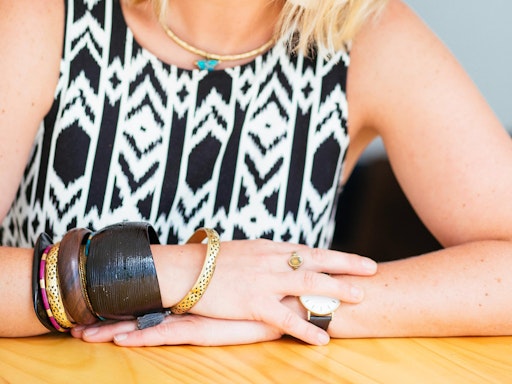
What’s your elevator speech for PUT YOUR HEART INTO IT?
PUT YOUR HEART INTO IT is all about gathering people together to build a community. We don’t just run workshops; we want to inspire individuals to consider their choices when it comes to their connection to the environment. We aim activate minds and help people realise why it’s important to connect with each other and slow down, be mindful and empower ourselves. Apart from the workshops, we also educate people through offering grazing tables of food at events. We offer sustainable event management for weddings and corporate events.

What was your first step into this more conscious lifestyle? Have you always been an environmentalist?
I guess I was already passionate about creating less waste because I’ve seen issues working in the corporate world as a project manager. Seeing big furniture and office items being thrown out, being sent to landfills and just noticing how much people consume. I had also begun to buy organic and local food. It’s not about feeling guilty though, if you’re not doing it perfectly. It’s more about making small changes - which is better than none at all.
What inspired you to start PYHII?
Working on events, I noticed huge amounts of waste, and my partner and I, we realised there’s a better way of doing things. Just seeing $150,000 worth of flowers being used at a wedding just for one day, and then getting thrown out? There was that realisation of how much we consume and how much waste there is out there. We put on the workshops to inspire people to learn and be empowered through lots of different crafts, hand making their gifts instead of buying them. We design for events to show that they can be fabulous without creating more waste and consuming more. Our inspiration when we first started was to support ethical and local businesses, artists that are doing the right thing, to bring them all together and showcase them to people.

And that’s how we see ourselves differently. We wanted to create something unique and that’s creating an environment where people feel comfortable, they have food and wine, great conversations and wonderful speakers that are really passionate about what they do. They learn through not just doing, but also through interesting talk. We try to tick off every aspect to create a comfortable atmosphere.
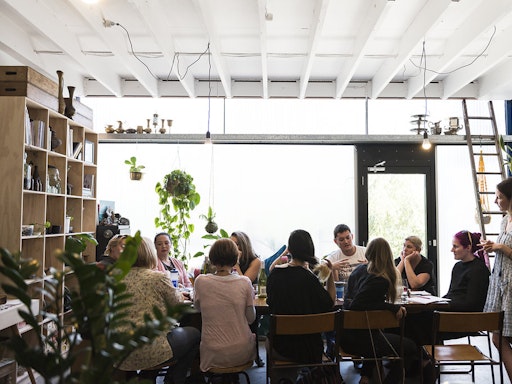
Our first one workshop was a huge success. It was fully booked in just two days. And now we have 20 different teachers and different types of workshops. But we still put all the effort in with all the details, the food and styling of the space.
Not a lot of businesses specialise in sustainability. What are the most challenging aspects to that?
I suppose it’s taking the time and consideration for every choice and every step that we make. We spent a year of research before we put out first workshop on, to ensure that we didn’t have any waste and that we were working with the right businesses and using the right products. It’s more about using less. It’s more about what we can actually take away but still put on a fabulous event.
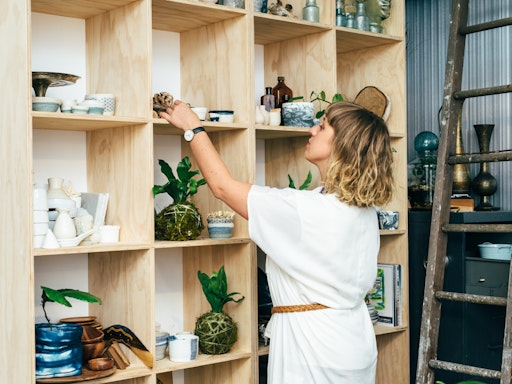
On the other hand, what’s the best part about running a sustainable business?
The best part is seeing our community grow. Seeing the same people come back time and again, the connection that people are making, seeing the comfortable atmosphere that we’re creating that allows people to open up and share stories. I love when we inspire people to create less waste in their life when they see that we can put on a beautiful feast, a grazing table of cheese and beautiful organic fruit. It inspires them to think about where they’re purchasing their produce.
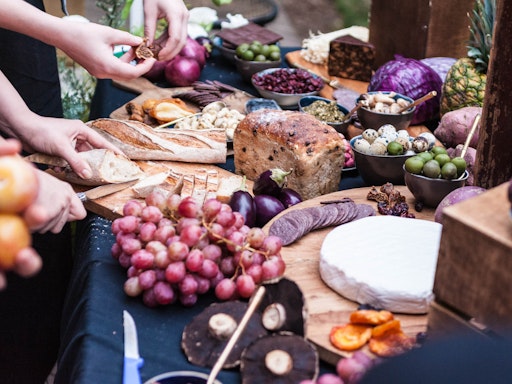
What are some of the most interesting stories you’ve had in the workshops/events?
We’ve got so many memorable and interesting stories! Especially weddings and events that are fully sustainable and have been zero waste, meaning having no plastic bottles, using plants instead of flowers, composting any of the food or donating it once it’s over. They’ve been memorable because of the effort that’s been put in and the commitment by all of our staff to follow.
Sustainability is a confusing subject to a lot of people. It’s hard to nail down what exactly makes something sustainable. What are the most important ethics for when buying a sustainable product?
The most important thing is that the product is by a business that is working hard to be inclusive and diverse. Sustainability, as a whole, is such a broad term that’s why it is confusing because it covers so many different aspects. A few of those I learned during a sustainability leadership training I did at the Centre for Sustainability Leadership.
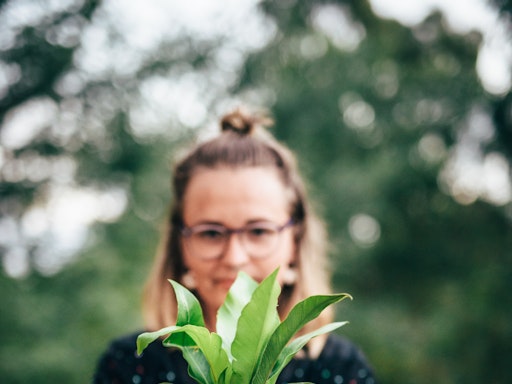
So, the most important thing for the business is to be inclusive and diverse – this includes the way they hire their staff, that they consider the energy usage, the actual materials that they use - whether they’re going to have long-lasting impact on the environment and whether they make healthier choices. You can never be 100% perfect when creating a product, but the most important thing is you consider all your impact, including things like animal testing.
Aboriginal affairs are very important too, that we include that and consider that. We have to be proud of what our country has been for so many years. It’s acknowledging that, which is why we’re working on projects and events on that area as well.
Can you tell us more about that?
There’s so much that we didn’t learn at school about what really happened here in Australia. We would like to see people questioning, researching more and learning as much as they can about our culture and celebrate thousands of years of history and culture, and the beautiful impact that was laid upon this land. All the beautiful indigenous native plants that were taken away, we want to get back to planting those again. We believe it’s really important to purchase Aboriginal owned and operated.
We also put on a big event called ‘Enquiring Minds’. It’s an immersive event with film, food, a Q&A panel, and an installation and projection. We wanted to create a space and a movement for people who would like find out more and celebrate who we are as Australia. Because a lot of people don’t know who we are. They don’t know what our culture is.
We’ve got beautiful elders, storytellers and artists that are willing to share, and want to work together to change things. So, it starts in creating spaces where people feel comfortable to ask their questions, and not feel bad about what they don’t know.
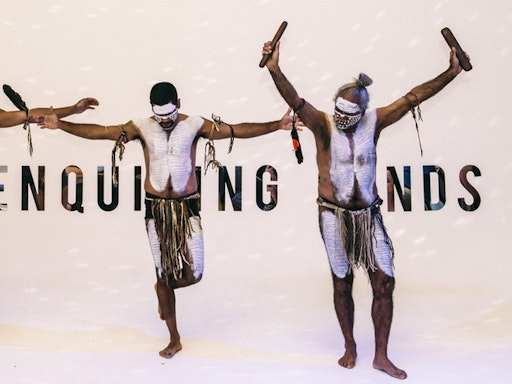
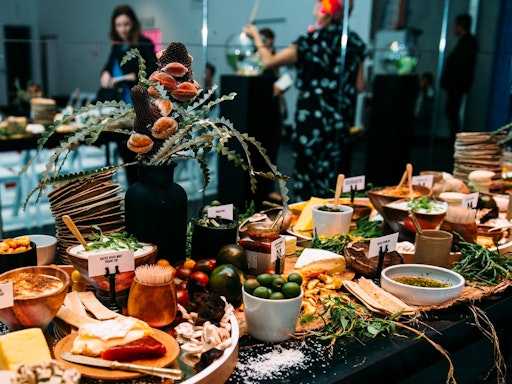
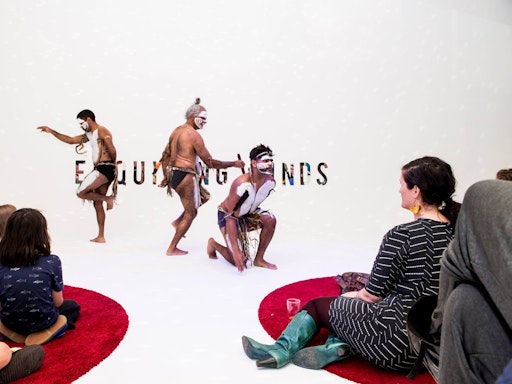
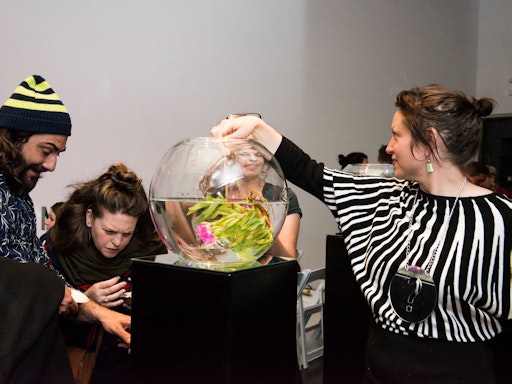
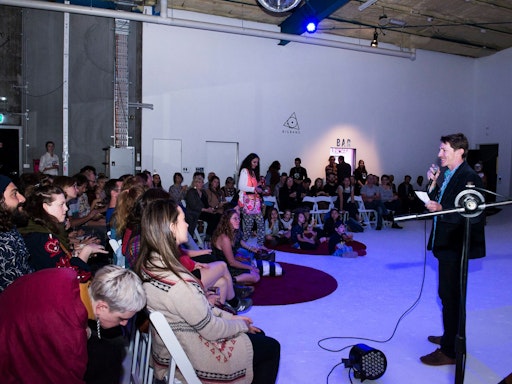
This must also be an arduous task to undertake.
It’s definitely a difficult topic. A lot of people say it’s difficult to work in that area coming from a privileged place and having blond hair and blue eyes. But we need more people working together to create change and that requires picking a difficult topic. It’s challenging because there’s so many different rituals, and ceremonies and connection to the lands that’s so incredible - it’s outside of our realm because we spend most of our time damaging it, whereas they spend most of their time listening to it and acknowledging it. It’s part of their entire culture and communities. It’s creating space where we’re not just focusing on the past, but we’re creating a space so we can listen and learn and understand what that is, as well. We want to celebrate the beauty and the culture and the connection and how we’re going to work together to celebrate Australia.
Personally, is it challenging to maintain a sustainable lifestyle?
Not at all. If you don’t place guilt on yourself and you constantly research what’s available to you in your local area, there’s lots of people making it easier for other people. We have CERES, which is across the road from us. They put together fruit boxes weekly and organic local food. Makes it a lot easier and accessible to buy organic and local at a great price and without having any packaging. You think it might cost to buy organic. But someone may go and spend on a new homeware or a new piece of clothing, a jug of beer that they may not need. In the end, if you’re spending that extra money, it’s better to spend towards people doing good things, to support them, to keep their farms going and produce food that doesn’t have pesticides or chemicals.
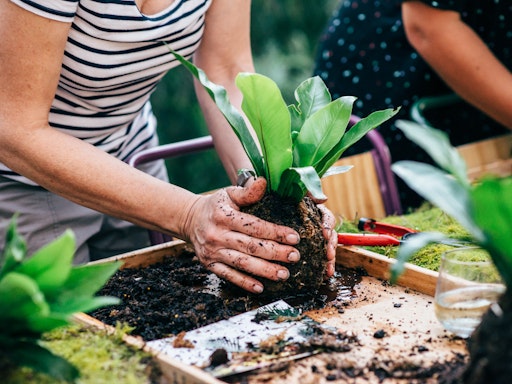
If someone were to decide to live more sustainably, where’s the best place to start?
I would say choosing ethical businesses that have a commitment to supporting the community, are doing the right thing and making the right choices. Also, supporting the smaller businesses in your local area rather than the big chain stores.
Consider when you’re putting on an event for just one day- even if it’s just one day in your life, it may have an impact for thousands of years. Like if you’re purchasing plastic. Plastic doesn’t disappear for a long time. Using less one-time use objects as much as possible can have a huge impact. Even switching from eating a lot of meat every day to just having it in lesser meals, and trying to eat more vegetable or fruit based diets can have a big impact as well. It’s connecting the dots and visualising that everything is a full circle. The Earth is being devastated by what we put in our mouth, what we wear on our backs and what we do, so it’s recognising that these are the facts and we need to make changes because of that. We can still have a fabulous life, we can still celebrate, we can still have beautiful events and have lots of fun without hurting the Earth.
What’s the next milestone for PYHII?
We are coming up with 10 new workshops to our list for the second half of the year, which includes ceramic table ware making, jewellery workshops, incense making workshops and a few others. We’re also running Enquiring Minds again in June, and we also hope to be catering grazing tables of food, hosting private workshops, styling and planning events as much as possible.
Our milestones are meant to build our community and we enjoy every aspect of it. It’s not easy, but we feel pride in the fact that we have people come back to us time and again saying that they’ve learned so much, and they love the ethics behind our business and they can see it in everything that we do. We don’t just talk it, we walk it.
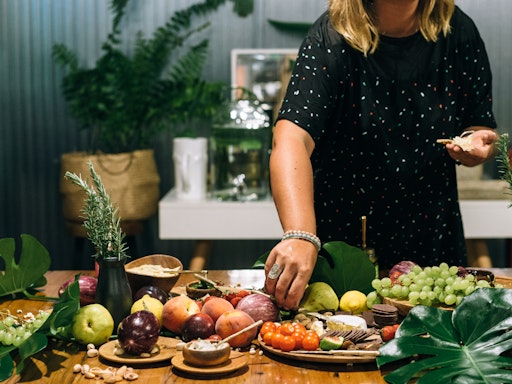
We would love to take the business all over Australia, but for us, it doesn’t matter how small or big it becomes. The most important thing is that we are inspiring other individuals to make better choices, and that everyone’s having a lot of fun in the process. In the bigger scheme of things, that’s all that really matters.